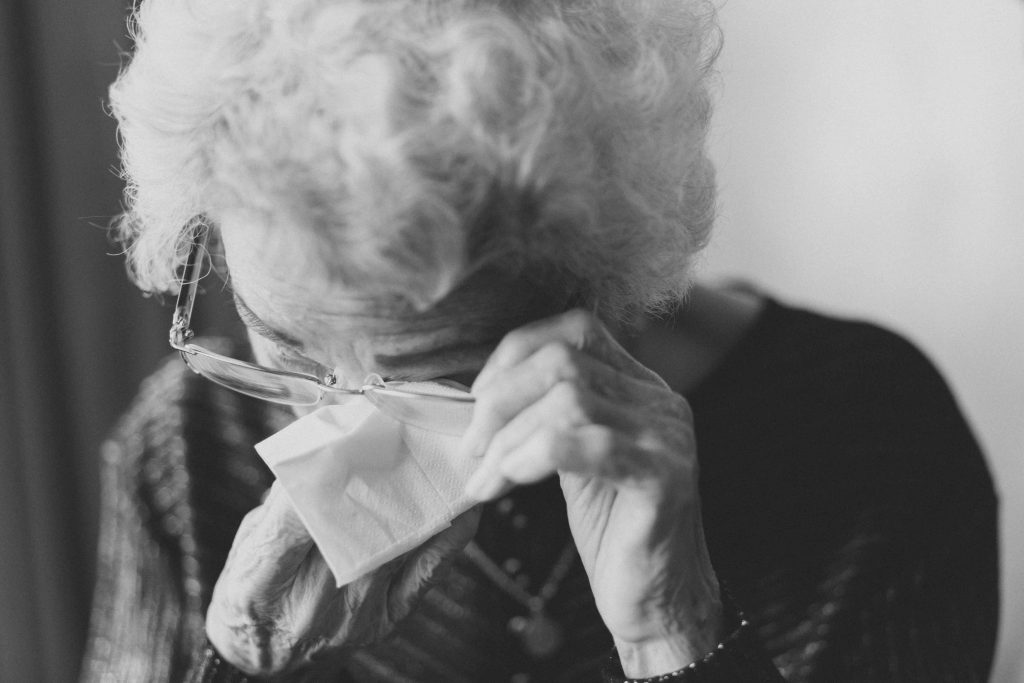Every 1.5 hours, an American adult over the age of 65 commits suicide. This is the unfortunate and dark reality that should be acknowledged and addressed.
Why do Seniors Struggle with Suicidal Thoughts?
As many people enter their 60s and 70s, they tend to look back on their life achievements and evaluate their self worth. This can lead to self deprecating thoughts of feeling like they’ve missed out on their life. It is not uncommon for people to become depressed as they age. However, when self reflection is combined with isolation/living alone, financial stresses, and/or deteriorating mental and physical health, depressive thoughts can easily follow. Because the signs of depression go unnoticed in so many cases by loved ones, seniors are in the highest cohort of the population that commit suicide.
Today’s Senior Mental Health Efforts
It’s important to note that mental health studies and awareness has drastically improved in the last few decades. Though this is incredible in terms of pioneering a future where mental healthcare is accessible, it also means older generations may be less educated and open to ideas surrounding it. In other words, today’s seniors are at higher risk of struggling with mental health stigma or not knowing what to do about a potential illness. It is therefore extremely important that family and friends are knowledgeable in the subject, should signs of depression surface with senior loved ones. Suicide in seniors is something that can be mitigated if these warning signs are spotted early on.
Warning Signs
The following symptoms are common in an elderly parent or grandparent that may attempt suicide. It is important for anyone who cares for an older loved one to be attentive with their behaviour.
- Talking about wanting to hurt or kill themselves
- Asking for sudden access to firearms or pills
- Suddenly talking or writing about death, suicide or dying
- Isolation
- Substance abuse
- Anxiety and agitation
- Expressing feelings of being trapped
- Hopelessness
- Anger
- Recklessness
- Extreme mood changes
Who is at Risk?
Though anyone can fall victim to depression, people who have struggled or currently struggle with the following are especially at risk of having suicidal thoughts.
- Suffer or have suffered a mental illness
- Have a close friend who has committed suicide
- Has trauma from monumental negative experience(s), such as war
- Is undergoing major life changes, such as retirement or sudden financial burden
- Is living alone
How Can Suicide be Prevented?
The following factors have been shown to greatly improve the stability of an older adult with thoughts of suicide. It is important to help nurture this type of environment for any senior because it can prevent cases of depression as well as diminish already existing thoughts of suicide.
- Maintaining a strong community and support system
- Getting exercise and maintaining general physical health
- Friends and social contact
- Feeling purpose in one’s life
- Volunteering and community engagement
What Can I do to Help?
Those who are in consistent contact with the elderly person, like family or primary care providers, should take suicidal talk or signs of depression very seriously. When an elderly individual talks of being a burden, withdrawing from activities, or seems disinterested in life, it is necessary to address their mental stability.
Contributing to somebody’s improved overall quality of life and self worth can be achieved in many different ways. Having a family meeting so that all members can contribute, joining them in fitness activities, or getting them a pet to care for are some ways to address the above factors. However, every person is different and each case can only truly be judged by a medical professional and/or those who are close to the individual. For more information and resources on mental health, your loved one should see his or her medical doctor.
